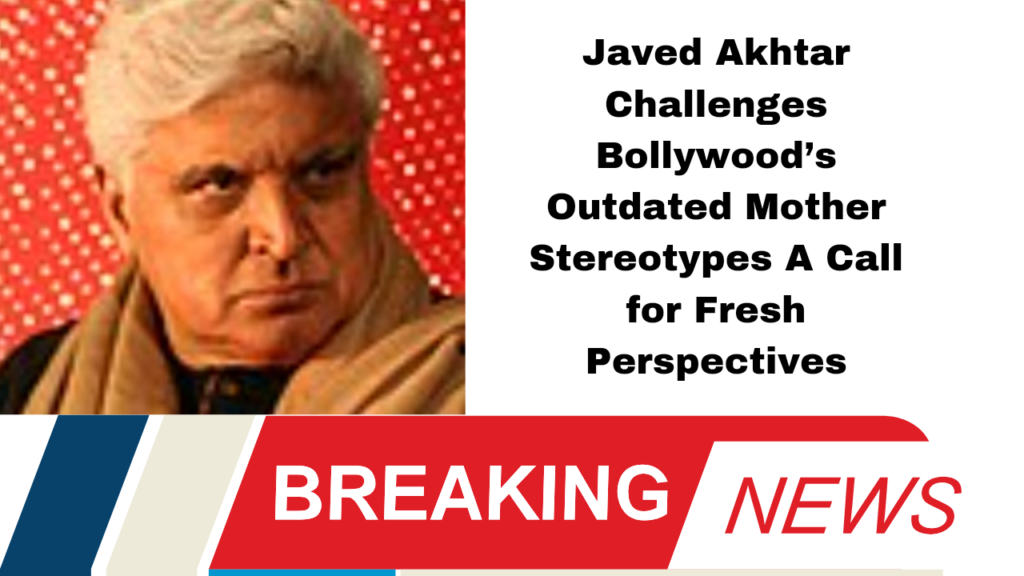Legendary Writer Calls for Fresh Depictions of Maternal Figures in Cinema
Bollywood’s Iconic Dialogue Under Scrutiny
Javed Akhtar, renowned writer and social commentator, has recently taken a critical stance on the stereotypical portrayal of mothers in Bollywood. Akhtar addressed the over-reliance on the iconic dialogue “Mere paas maa hai” from the 1975 film Deewar, highlighting the need for contemporary and nuanced representations of maternal figures in cinema.
The Mother Stereotype Overplayed and Outdated
Akhtar, who co-wrote the screenplay for Deewar with Salim Khan, acknowledged the lasting impact of the film’s dialogue. However, he criticized its excessive use and the resulting stereotypes. “The image of the mother is still relevant, but its dramatic use has been done to death,” he stated. According to Akhtar, while the dialogue remains impactful, its repeated and clichéd use has led to a disconnect with modern audiences. “People are tired of clichés. If you write ‘Maa main teri pooja karta hun,’ it will not work now,” he added.
The Underlying Issue Societal Attitudes Towards Women
Akhtar also expressed concern about the broader implications of how mothers are revered in society. He pointed out that societies which excessively value mothers often reveal deeper issues regarding the treatment of women. “In any society where mothers are valued too much, it means women are in a bad position,” Akhtar explained. He emphasized that while respect for mothers is important, it should not come at the expense of the respect and fair treatment of other women, including one’s wife.
Legacy of Deewar and Its Cultural Impact
Released in 1975, Deewar was a major box office success and became the fourth highest-grossing film of the year. Directed by Yash Chopra and featuring a stellar cast including Amitabh Bachchan, Shashi Kapoor, and Neetu Singh, the film remains a classic. The dialogue “Mere paas maa hai,” delivered by Shashi Kapoor, continues to resonate with audiences, though Akhtar’s recent remarks suggest a shift towards more nuanced portrayals is needed in contemporary cinema.
Akhtar’s commentary serves as a call to action for filmmakers to rethink and refresh the depiction of maternal figures, ensuring that their portrayal evolves with the changing times.
